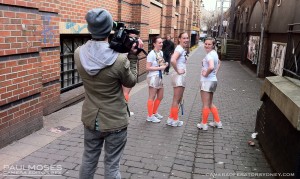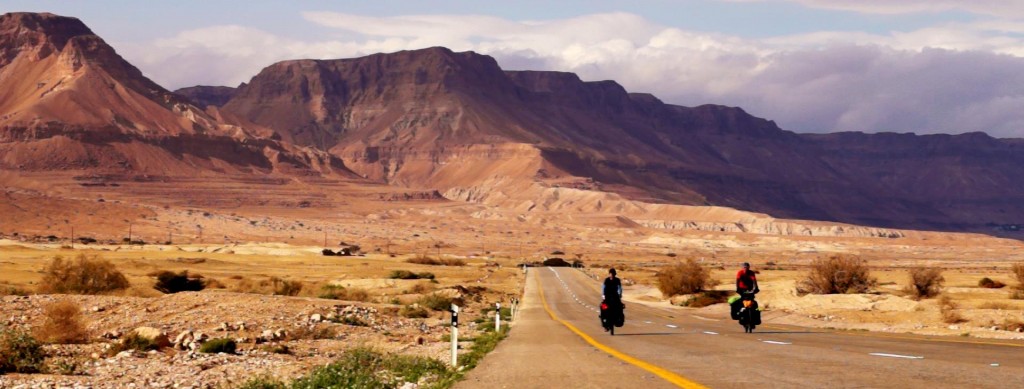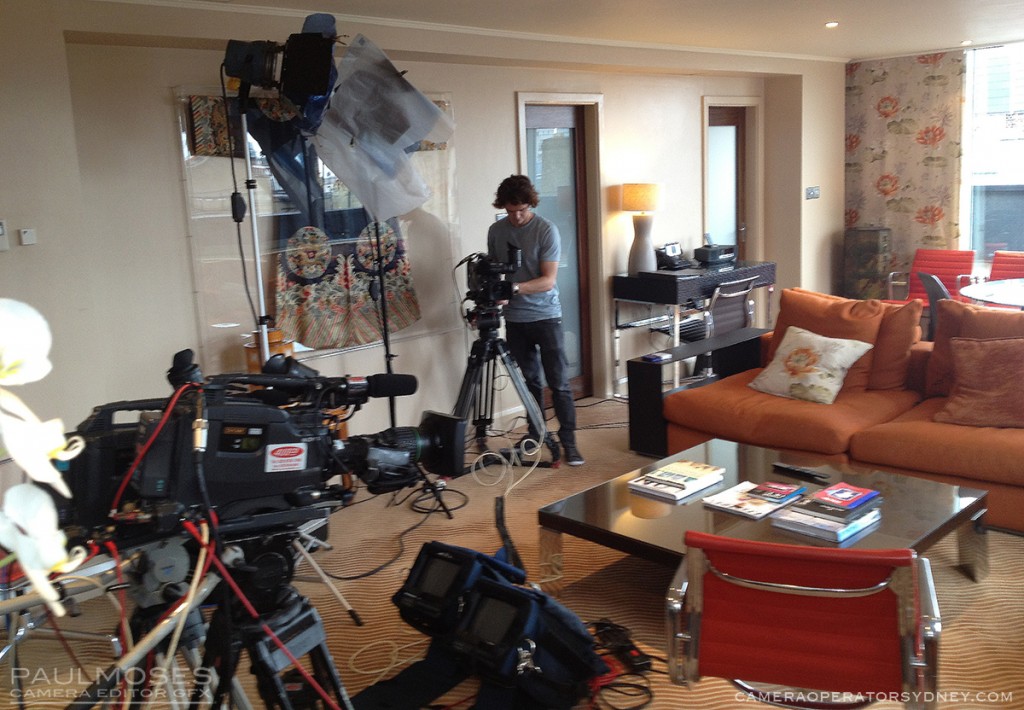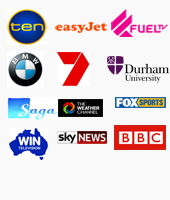Are you are a skilled and experienced video creative or a production house in Australia? Looking for an innovative avenue to gain more work with companies around Australia actively looking to create videos for their business? Vidibid can help.
Connecting businesses with video creatives
7 lessons I’ve learnt since becoming a freelance cameraman.
I have been wanting to write an article like this for a little while now, and seeing as it’s raining outside and I have no shoots on, today seems like a good day to do it!
There are loads to resources to provide ideas and hints on the best ways to prepare yourself before throwing in the nice, secure, full-time job in the video production industry and going out into the scary world of freelancing – this article is meant to be just a small collection of tips that I have learnt over the last 3 years and how they have helped make my life easier.
Before starting cameraoperatorsydney.com I was a full-time staff cameraman & editor for around 6 years at TV stations here in Australia, as well as a few years working for a production house in London. My full-time experience proved to be invaluable experience and a way of gaining a solid set of skills behind the camera, directing and seeing the end-to-end video project journey.
In November 2011 I left my full-time job as a senior staff cameraman/DOP in London to spend a few months cycling across Europe with some friends. Leaving that job, I thought that when I finished my trip I would need to find another full-time job when I returned to London. Freelancing was something I’d considered but never seriously as I didn’t have camera gear or enough contacts in the industry to get me going, and I wasn’t 100% confident that I would find enough work to survive.
Towards the end of the trip, and with hours and hours of time on the bike to think about what I wanted to do, the thought of going freelance started to take shape in my head. The beauty of traveling is that by taking yourself away from your normal life you get a fresh perspective and confidence of what you can do next. By the last week of the trip I was set on becoming a freelance cameraman in London.
The only bit of gear I had was a Sony A77 DSLR I had bought to take video on the cycle trip and a few lenses so I knew I would need to buy a few things. Upon returning to London I set about on day one of being a freelance cameraman – with hardly any camera equipment, minimal contacts and not a clue how to run a business, but I had enough saved to give it a go for a few months!
The first place I turned to was my only real contact – the company I used to work for before I left for the cycling trip. My old boss is somebody I really respect as a boss as well as a person and after a quick meeting he was kind enough to offer me a few days a week shooting and editing to get myself back into the swing of things – and that’s where my freelance career started in March 2012! I have learnt a whole lot since then and I am still learning how to improve this business everyday. Hopefully the list below helps you out if you’re thinking about going freelance.
If you are already freelance and think I have left out a valuable lesson you have learnt then please add it to the comments – there is always more to learn!
1. Setting a date to become freelance is key.
Setting a date in your head to become freelance is important – it gets rid of the “I’ll do it one day” attitude as well as helping you plan to get yourself ready. A few questions to think about:
- Do I need to buy equipment or am I going to try and gain work by just offering my skills?
- How am I going to get my name out there? Website / Business cards / calling contacts / cold calling / freelance communities?
- What will my focus within the industry be?
Setting a launch schedule, I suggest around 3 months out to start cutting your showreel, designing your business cards & making a website to prepare yourself ready for launch.
2. Using accounting software is worth it!
When I first went freelance I was using a dodgy-looking word document to send out invoices and a really basic excel spreadsheet to monitor due dates & bills etc. It was taking a lot of my time to manage and as soon as I started having multiple quotes, invoices and bills out at one time, it became quite confusing and hard to work quickly. I did some research on different accounting software: the big players such as MYOB, Quickbooks, Xero etc are great for businesses but they were a bit of overkill for a freelancer and come in at around the $50 a month. I eventually found a UK based startup cloud accounting company called FreeAgent – they offer a great little online platform that lets me manage quotes, invoices, all my industry contacts, bills and banking for around $25 a month (depending on currency exchange at the time). That $25 a month has saved me so much time over the years and is well worth the money.
If you decide that FreeAgent would suit you then click the link below and we will both receive a 10% discount!
3. Investing in good lights and a decent tripod is a good move.
Camera technology is moving at an unprecedented pace at the moment – the life span of a camera these days is 2-5 years max before something new and cheaper comes into the market. Although the same can also be said for lights and tripods to a certain extent, it is easier to continue to use your existing equipment when newer models come out than it is with a camera. Buy yourself some good lights and a tripod and look after them – they will last you for years.
4. Research rates in the industry for your skill and experience level
This is a tough one to get right right from the get go – you may start with a ball park figure and adjust accordingly from there.
My advice would be to work out how much you are or were being paid per hour in your full-time job and at least double it (preferable triple it). You need to factor in the expense of running your business including tax, superannuation and equipment, as well as your skill set.
5. Cold calling is worth it.
Last night I did a quick half day shoot with a colleague of mine who I brought in as a contractor to vision mix for me. We have worked together now countless times over the past two years where 90% of the time he has brought me in as a freelancer to shoot for him. He was one of my first clients here in Sydney and it all came from a cold call I made to him asking if he is looking for cameramen… I don’t do it so much anymore but cold calling when starting out is daunting and, lets be honest, not that much fun. But it works.
6. I’m not a cameraman or editor or director any more, I run a business.
It might sound obvious but when you are a full time staff member you go to work and become really good at your chosen speciality, someone else generally does the marketing for the business, someone else does the accounting, tax returns, cleaning, maintenance, project management, quoting, invoicing, website maintenance, vehicle maintenance, blogs, equipment buying etc etc. The list is huge! When you go freelance, you will need to do all of this, you will need to know when GST is due, how to fix a broken piece of equipment, if can you claim an expense on tax, how to quote for a job, who to call on when a request from a client has come in for an area that your not too experienced in and what are your terms and conditions for example? There is a lot to think about!
A lot of this can be learnt on the job when you throw yourself into the deep end, but it is a good idea to familiarise yourself with a few things before your ‘go freelance’ date.
7. I should have done it sooner!
It took me so long to build up the confidence and courage to jump into the world of freelancing! It even took me the cycling & camping through Europe in the middle of winter to have enough time to convince myself it was the best option!
It has been a huge three years, from starting in London in March 2012 with just one contact and hardly any gear to where the company is now…
I just wished I didn’t take so long with my decision to go for it! Being a freelancer has taught me so much and it is highly rewarding having clients coming back to you, not the company you are working for. Having e-mails from my clients saying how happy they are with my service is what gives me the most satisfaction in this game.
What have you learnt since going freelance? Share your knowledge in the comments below…
Get busy building your dream before someone employs you to build theirs.
I spend a large part of my time these days, developing video content direct to clients from concept to creation which is something I have always enjoyed as well as running this resource website for companies looking to hire freelancers in the video production industry.





